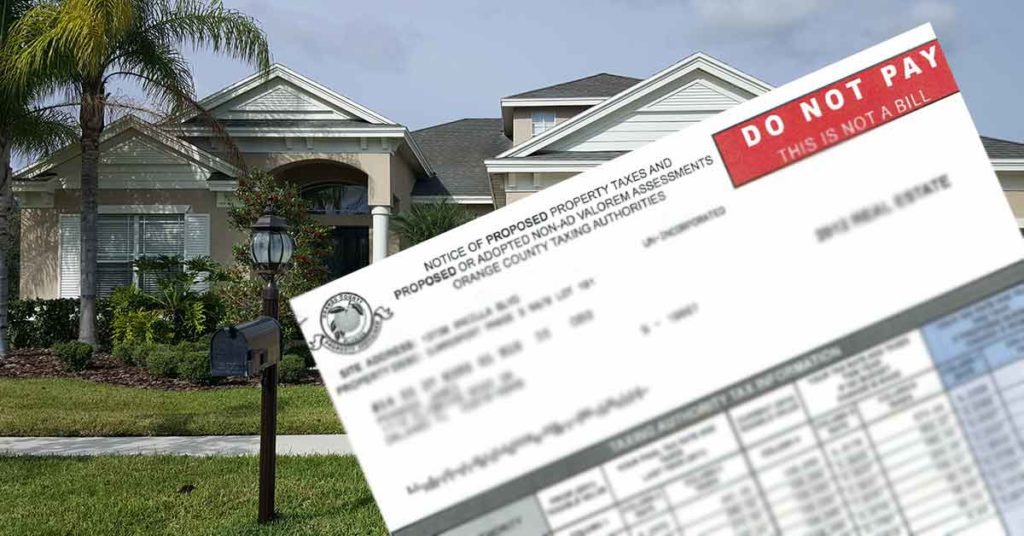Florida’s “Truth-in-Millage” (TRIM) Act was designed to inform property owners which governmental entity is responsible for the taxes levied against their property and the amount owed to each entity. The Notice of Proposed Property Taxes is known as the “TRIM Notice.” TRIM Notices are usually sent out in mid to late August of each year by the Property Appraiser’s Office in the county where the property is located. This notice is not a bill but rather an estimate of anticipated taxes based upon the proposed budgets of the governmental entities, your property value and any applicable exemptions.
PROPERTY VALUE
The TRIM notice will contain your property’s market, assessed and taxable values and list any exemptions that you may have. Market Value, also known as ‘Just Value’, is the county Property Appraiser’s best estimate of what a willing purchaser would pay to a willing seller while also considering other things such as the highest and best use of the property, the income from the property or the present replacement value of the property, to name a few. The Just Value is based on a January 1 appraisal and considers real estate transactions from the previous year as well as comparable values in your area.
The Assessed Value is generally the Just Value limited by the ‘Save Our Homes’ (SOH) cap on homesteaded property or the 10% cap on non-homesteaded property. The SOH cap prevents the assessed value of homestead property from increasing more than 3% per year, or the percent change in the Consumer Price Index, whichever is lower, unless there are changes made to the property or changes in ownership. If the property has a classified use value, such as for agriculture, the assessed value column is its classified use value.
EXEMPTIONS
The TRIM notice will also list homestead and other exemptions, if applicable. The most common exemptions are exemptions for members of the Armed Forces, exemptions for persons 65 or older and exemptions for a widow, widower, blind person or person with a permanent disability. Click HERE to get more information on the various available exemptions.
Exemptions reduce your assessed value to create a Taxable Value on which your taxes are based. If you bought your property during the current calendar year, and your seller qualified for exemptions, the exemptions shown are those that your seller had. These exemptions and the ‘Save Our Homes’ cap, if applicable, will be removed for the next year. You must apply for your own exemptions.
You should take the time to review the information and check the Assessed Value as the opportunity to appeal is only available for a short period of time. The mailing of the TRIM Notice begins the 25-day appeal period. If you disagree with the value set by the Property Appraiser’s Office or feel you should have qualified for an exemption, you should contact the Property Appraiser’s Office. If you are not satisfied with the outcome, you may file a formal petition with the county’s Value Adjustment Board (“VAB”). The filing deadline will be noted on your TRIM Notice. The VAB’s sole purpose is to hear evidence concerning whether properties are appraised higher or lower than market value and to hear appeals of the denial of exemptions. VAB members have no jurisdiction or control over taxes. Following your appeal with the VAB, if you remain unsatisfied with the value set for your property, you may file suit in civil court. Lawsuits must be filed within 60 days from the date the Property Appraiser certifies the rolls to the Tax Collector.
Dealing with the Property Appraiser’s Office and the VAB can be daunting but you can do it. If you don’t want to handle the process yourself, we are here and are happy to assist you. Our team of real estate and litigation attorneys have represented property owners in front of the VAB for residential, commercial and agricultural land valuations.
IMPORTANT: If you wait until you receive your tax bill in November, it will be TOO LATE to make any changes to your assessed value and the tax rates.
Content contributed by Firm Partner, REBECCA EMMONS. Ms. Emmons is a real estate attorney in our Vero Beach office.

